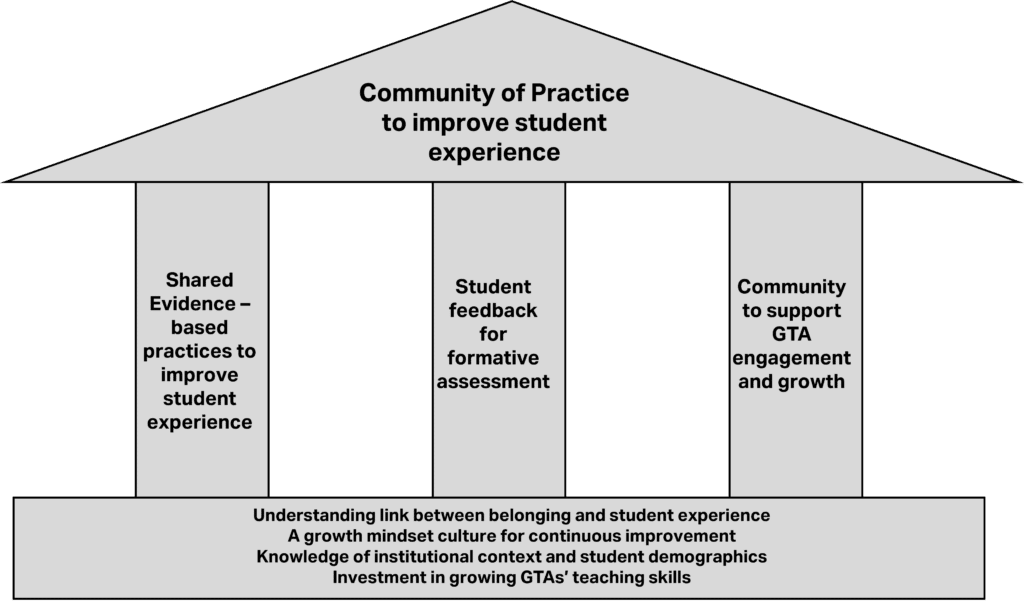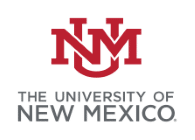Graduate TAs as Agents of Change for Equitable Student Experience
Graduate teaching assistants (GTAs) play a significant role in teaching at most US higher education institutions, but they often do not receive training or professional development to help them create positive learning environments and improve their teaching. The Student Experience Project (SEP) has demonstrated that when faculty have the right support, they can improve student experience in the classroom. In a project funded by the Alfred P. Sloan Foundation, two SEP institutions, University of Colorado Denver and the University of New Mexico, piloted a new training program for GTAs adapted from the SEP’s successful framework for faculty communities of practice. What we found demonstrates that a community of practice approach to GTA training can help GTAs feel confident in using new practices quickly and effectively, cultivate interest in additional training on evidence-based teaching practices, and foster increased collaboration and community among GTAs.
This toolkit is designed for department chairs, faculty, CTL staff, or other individuals who are interested in designing and facilitating a GTA community of practice centered on improving student experience. In this toolkit, we detail the key components of the GTA training curriculum as well as the departmental structures and support needed to implement this training successfully.
Our Approach
Our framework for GTA training is rooted in a community of practice approach, where participants are supported to understand the research linking belonging and student achievement, grow their skills and knowledge over time for continuous improvement, learn about the institution’s context and student demographics, and cultivate an interest in improving their teaching. Equipped with this knowledge, GTAs use a series of evidence-based practices, collect formative feedback on students’ experiences, and gather regularly to reflect together and grow their understanding of student experience and success.

GTA Training Framework
Establishing Community
Communities of practice allow GTAs to engage in just-in-time learning to improve their teaching practices while being supported by a community of peers and advocates. Read our brief on how to construct CoPs to support GTA’s learning while fostering understanding of student success.
Evidence-Based Practices
This training model revolves around several teaching practices informed by social-psychology research and which have been demonstrated to have positive impact on student experience and outcomes. They have been specifically designed to be within the realm of GTA influence and in the context of GTA positionality to students
Formative Feedback
GTAs can gain important insights into how students are experiencing their course by regularly asking students for their feedback about the learning environment. The process of gathering formative feedback can help GTAs identify areas to improve and help them improve their connection to students.
Case Studies
Learn more about each institution’s context and approach to GTA training
This toolkit was developed collaboratively by practitioners, faculty members, scholars, and Graduate Student Teaching Assistants at the University of Colorado Denver, the University of New Mexico, Equity Accelerator, and the Coalition of Urban Serving Universities. This work was made possible by a grant provided to the Association for Public and Land-grant Universities from the Alfred P. Sloan Foundation.


